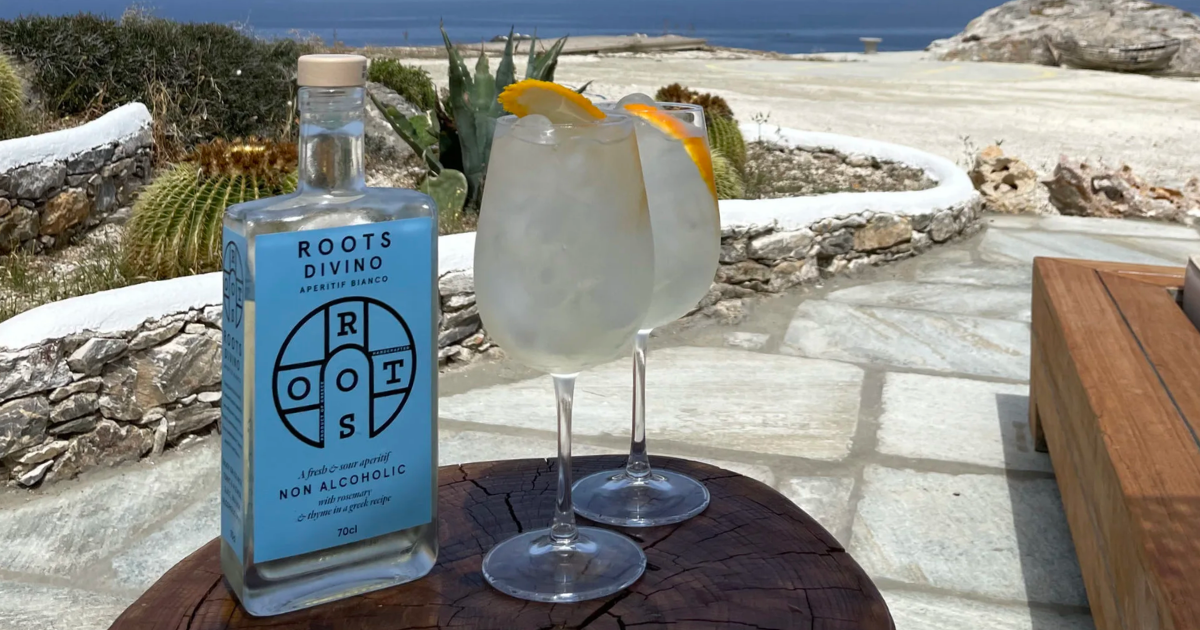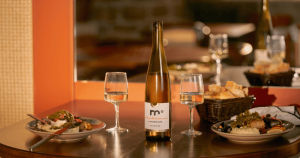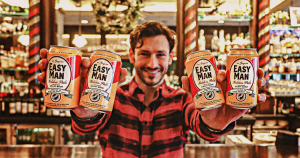Have you ever given much thought to how drinking cultures differ outside of your home country? Victoria and I just spent three weeks exploring the Greek islands of Folegandros, Milos, and Crete, where we enjoyed taking part in a drinking culture quite different from America’s.
Upon landing on Folegandros, our hotel owner greeted us in a warm show of hospitality with rakomelo, a spiced and honeyed raki-based digestif. Personally, I could do without the alcohol, but I loved the cinnamon, cardamom, and honey flavors—and those of other Mediterranean herbs new to my (predominantly American) palate.
We sipped our rakomelo chilled on Folegandros, but on nearby Cycladic island Amorgos they “bake” it and serve it hot. A wedding tradition there, the baked or psimeni raki’s spices are thought to inspire warmth and cheerfulness among wedding guests.
In Milos, our Airbnb hosts introduced us to ouzo, another quintessential Greek spirit, during an early evening gathering. Paired with small appetizing dishes, the anise-flavored aperitif was more than just a beverage; it was an avenue for building friendships and engaging in spirited conversation (as much as our language barrier would allow). In Crete, our host shared lemons from the abundant lemon trees in his courtyard, which I squeezed and zested to make fresh lemonade.
The burgeoning non-alcoholic side of Greek drinking culture is as notable as its alcoholic counterpart. Cafes across the country serve refreshing mocktails with sparkling water and flavored syrups, perfect for a leisurely meal with friends. Nearly every menu we saw featured a non-alcoholic beer or two. Additionally, new alcohol alternative brands are emerging. For example, Finest Roots offers Roots Divino, a pair of vermouth alternatives with complex blends of herbs that capture the essence of Greek flora. We enjoyed their Bianco and Rosso spritzed with fresh citrus throughout our trip.
That said, alcohol does feature prominently in Greek tradition as it does in most western cultural traditions. Before the advent of modern water filtration and purification technologies, beer and wine were necessarily the most popular everyday drinks (although they were quite low in ABV by today’s standards). Ancient Greek writings make only scant reference to water drinking.
Today, however, the Greeks teach us that alcohol isn’t a prerequisite for enjoyment. The act of drinking extends beyond mere consumption; it’s about camaraderie and shared experiences, regardless of what’s in your glass. And, the options for what’s in your glass are constantly evolving. With modern de-alcoholization technologies like reverse osmosis and vacuum distillation, it’s now possible to enjoy even traditionally alcoholic drinks without the booze.
Whether you’re sipping a fiery raki or an herb-infused Rosso Roots Divino, here’s to the Greek ethos, reminding us that the joy of drinking culture transcends your choice of beverage—it’s about the moments that bring us closer together.
Stay tuned as we continue to explore global beverage cultures! Next stop: Amsterdam, where we learn how centuries-old Dutch alcohol companies are responding to the surging interest in alcohol alternatives.






